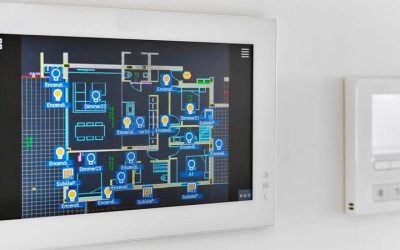Fitbit. Vivoactive. Gear Fit. Chances are you’ve heard of at least one of these names. For more than a few years now, we’ve all become increasingly aware of fitness bands as a multitude of brands and designs have flooded the fitness market.
You might be even more familiar with them – especially if you’re one of the consumers that purchased one (or more) of the millions of units that companies have sold in recent years. Just how popular have wearable fitness trackers become? As Business Wire reported in March, fitness trackers and smartwatches loaded with similar software are selling better than ever, based on data compiled by the International Data Corporation.
Last year alone, shipments for the fourth quarter totaled 33.9 million units, representing a 17% increase over the same period in 2015. Full year-growth has been even more impressive: shipments rose 25 % in 2016 to reach 102.4 million units, a new all-time high.
With the current fitness craze here to stay, what’s next for wearables? While monitoring heart rates, counting steps, and calculating total calories burned is indeed very important, can fitness trackers eventually be used to monitor other vital functions while alerting wearers of potential health problems? Medical device sales reps and industry leaders think they can and believe it’s time to try.
Are Fitness Trackers Medical Devices?
From a legal standpoint, the United States Food and Drug Administration (FDA) approves a medical “device” as a specific medical or health-related tool (FDA). According to the FDA, “device” is a term defined in 201(h) of the ongoing Food, Drug, and Cosmetic Act (FD&C Act) to include “an instrument, apparatus, implement, machine, contrivance, implant, in vitro reagent, or other similar or related article, including any component, part, or accessory, which is intended for use in the diagnosis of disease or other conditions, or in the cure, mitigation, treatment, or prevention of disease, in man or intended to affect the structure or any function of the body of man.”
The FDA makes it clear that any wearable device wanting to be considered a medical device must prove that it can treat specific diseases or conditions. If it cannot, any such device should be regarded as a general wellness gadget and not a regulated medical device (iDownloadBlog.com).
For the time being, fitness bands and trackers are considered “lifestyle devices” and not “medical devices” because their categorization as actual medical devices carries requirements for compliance to specific regulations. Eventually, that may change as the FDA is currently assessing how to revise the ruling to represent the current thinking on this topic as well as the unique potential of certain fitness trackers in the future.
The Future of Fitness is Coming Fast
What does the future hold? As it turns out, plenty. Eric Schadt, Director of the Icahn Institute for Genomics and Multiscale Biology at Mt. Sinai in New York, believes that the fitness tracker industry is on the cusp of serious breakthroughs as reported in Outside Magazine. “In five years, we’re going to transform human health. We’re not only going to know your personal and correct heart rate zones, we’ll know how exposure to pathogens and pollution personally impact you, and we’ll be able to adjust when and how you work out,” he said.
Schadt’s beliefs may not be too far-fetched as there have already been many impressive advances in the field of wearables in the last couple of years alone. For instance, there are now wearables that continuously monitor glucose levels for diabetics and inhalers for asthmatics that can alert doctors if a patient is about to suffer an attack. Recent advances show fitness trackers that also track sleep patterns and other biometrics and check blood levels that can monitor diabetes, test cholesterol, take blood pressure, and more.
The Near Future
In recent years, we’ve all come to learn how just how much hydration matters. Everything from a person’s weight, concentration level, heart health, and even sleep quality is adversely affected if they’re not sufficiently hydrated. One of the most interesting (and important) areas of study has been in hydration monitoring. While no company has officially laid claim to technology that can accurately detect hydration levels, a few are very close There are even a couple of devices have taken stabs at it, such as the LVL and Halo Edge bands.
The biggest roadblock now seems to be the simple fact that measuring hydration is complicated. For now, the only surefire way is by testing urine. Experts say that, within two years, however, the market is likely to see monitors that can alert someone when their hydration level is low and can inform them exactly how much water they need to drink to return to a satisfactory level.
Blood sugar monitoring is crucial – not just for people who have diabetes, but for virtually anyone interested in their overall health. As wearable technology expert Wareable claims, similar to not having enough water, having low blood sugar impairs cognitive performance. Therefore, a device that could advise someone when to eat something to raise their levels would be useful indeed. Likewise, it could sound a warning if they’ve been eating too many sugary snacks.
Innovations such as fitness trackers that monitor blood sugar levels could change the very dynamic of how healthcare works, and give people more control over their wellbeing. There has been a rise in blood sugar monitors of late that are non-invasive and don’t require drawing blood, like the Dexcom G5 and Glucowise. Unfortunately, no one has managed to build the tech into a fitness band just yet. Still, industry leaders are confident that like devices that track hydration levels, it’s only a matter of time before we start seeing over-the-counter blood sugar monitoring trackers.
No doubt about it, the wearable movement is alive and well and is riding a wave of tremendous momentum. The only question now is can fitness trackers make the transition from simple monitoring equipment to full-fledged medical devices capable of preventing health issues before they start? With growing support and increasing ingenuity, many people are increasingly optimistic. And that’s a good thing for not only medical device sales reps and companies looking to sell such health monitors, but also for wearers whose lives may be saved.


